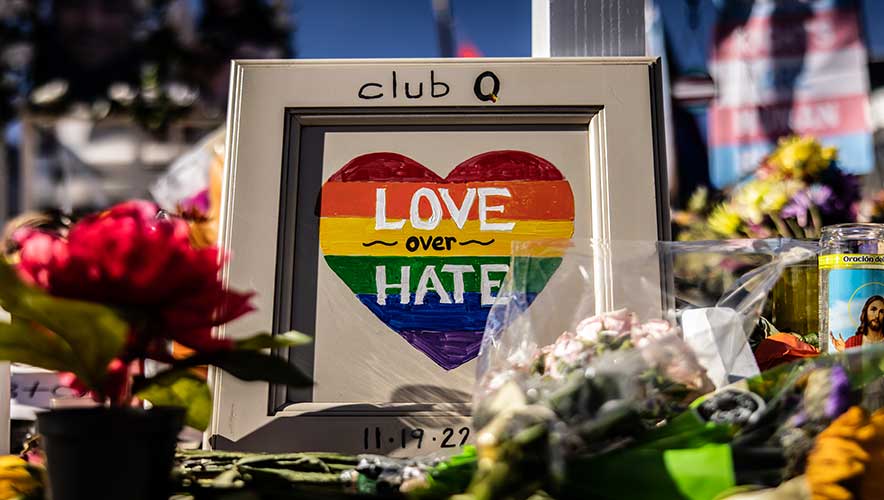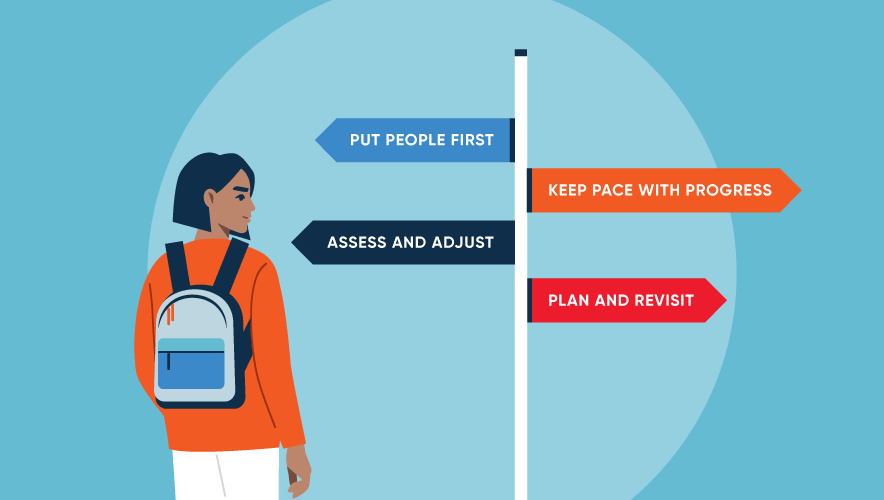FBI Hate Crimes Report Plagued by Lack of Data
Comparing FBI data about reported hate crimes in the United States in 2021 versus 2020 shows a major decline, but with a massive caveat: the FBI changed reporting systems, so far fewer jurisdictions uploaded data in 2021.
The official FBI report recorded 7,303 hate crime incidents in the United States in 2021, reported by 12,090 law enforcement agencies across the country. In 2020, the FBI hate crimes report recorded 8,263 hate crime incidents reported by 15,138 agencies. Agencies are not required to report any data on hate crimes to the FBI. (Source for the number of incidents: the FBI’s online Crime Data Explorer; sources for the reporting agencies: downloadable Participation Tables from the FBI.)
The FBI released its 2021 tally of hate crimes, but the report falls dramatically short of offering an accurate national snapshot: it excludes data from a swath of law enforcement agencies — including Los Angeles and New York. @JennyJarvie reports: https://t.co/e21TIy1aIe
— Los Angeles Times (@latimes) December 13, 2022
The reason for the decline in participation is the FBI’s transition from the Summary Reporting System (SRS) to the more detailed National Incident-Based Reporting System (NIBRS). Among the jurisdictions that did not make the transition to the new reporting system were New York City, Los Angeles, and Miami—some of the largest jurisdictions, which also happen to previously reported relatively high incidents of hate crimes.
An analysis from news site Quartz showed the 2020 numbers came from jurisdictions that covered 306 million Americans, while the 2021 numbers cover just 215 million. And there were also some data anomalies in 2021, such as Chicago (a city with a population of roughly 2.69 million people) reporting zero hate crimes.
“The Justice Department continues to work with the nation’s law enforcement agencies to increase the reporting of hate crime statistics to the FBI to ensure we have the data to help accurately identify and prevent hate crimes,” said Associate Attorney General Vanita Gupta in a statement.
The lack of data that resulted from the system transition means the FBI's report will not be a reliable year-to-year comparison tool for at least another couple of years. However, there are several indications that hate crime incidents in the United States continue to increase.
The Center for the Study of Hate and Extremism (CSHE), a data and research organization run by California State University, San Bernardino, published an analysis in August 2022 that estimated hate crimes had increased by more than 20 percent in 2021 and were up another 4.7 percent in the first half of 2022.
In an interview about the 2021 FBI report, CSHE Director Brian H. Levin told The New York Times that the FBI “numbers are not only incomplete, but it gives the false impression that things are getting better.”
The CSHE August report noted a particular increase in hate crimes directed at people of Asian descent. In addition, Anti-Semitism has been highly visible in the news recently, and several Jewish organizations condemned the release of the FBI data.
“The FBI report on hate crimes is among the most anticipated federal government documents. But its shortcomings undermine the gravity of the problem of hate in the United States,” said American Jewish Committee (AJC) CEO Ted Deutch.
In response to the rise in Ant-Semitism in the United States, the White House announced Monday the establishment of a group charged with establishing a strategy to counter “Anti-Semitism, Islamophobia, and related forms of bias and discrimination.”
As its first order of business, the strategy “will raise understanding about antisemitism and the threat it poses to the Jewish community and all Americans, address antisemitic harassment and abuse both online and offline, seek to prevent antisemitic attacks and incidents, and encourage whole-of-society efforts to counter antisemitism and build a more inclusive nation.”
Security Management has documented the rise of reported hate crime incidents in the last few years. An article on the 2019 numbers included details on the FBI’s Uniform Crime Reporting Program—the same program that oversaw the recent transition from the SRS system to the NIBRS system. A Today in Security post from September 2021 reported on the increase in hate crimes from 2019 to 2020.
Other Security Management coverage examined incidents directed at particular groups, including this infographic on the rise in hate crimes in the United States against people of Asian descent.












